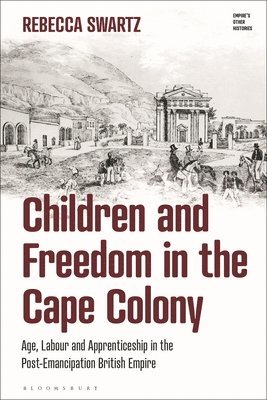Kommande

1939:-
Between 1830 and 1850 what it meant to be a child changed in fundamental ways across Britain's expanding empire. This book presents a child-focused history of the period surrounding slave emancipation in the Cape colony and the British Empire. The status of children and childhood were central to discussions of the meaning of freedom in the Cape colony between 1820 and 1850. It proposes that Cape history can be reappraised by adding the category of 'age' to discussions of race, gender, class and colonialism. In debates regarding the shift from enslaved or coerced indigenous labour towards nominally free labour, a particular preoccupation was what this would mean for children in general, and for child labourers in particular. There was significant concern regarding who counted as a child, and the measure by which childhood could be differentiated from adulthood. This was raised primarily through debates about child labour and education, including reflections on chronological age. In this period, chronological age became a crucial marker of colonial subjecthood, and a way in which the colony's population was managed. Drawing on diverse case studies from across the Cape colony and the British Empire, including archival material regarding apprenticeship for Khoe and formerly enslaved children, emigration and infant education, this book highlights the changing nature of childhood in the period 1820 to 1850. The book illustrates shows how children shaped, and were shaped by, both this colonial context and the changing nature of childhood across the British Empire. The ebook editions of this book are available open access under a CC BY-NC-ND 4.0 licence on bloomsburycollections.com. Open access was funded by the Bloomsbury Open Collections Library Collective.
- Format: Inbunden
- ISBN: 9781350341371
- Språk: Engelska
- Antal sidor: 256
- Utgivningsdatum: 2025-12-11
- Förlag: Bloomsbury Publishing PLC

